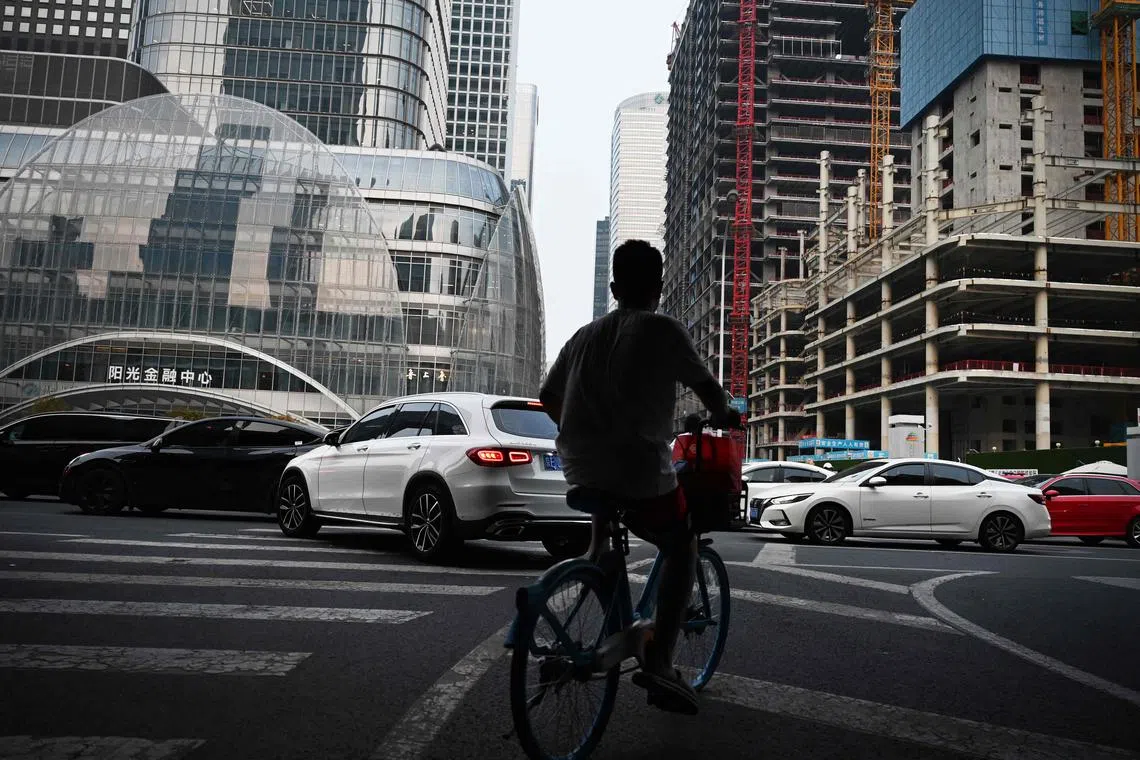Shenzhen to offer affordable self-driving minibus rides
Sign up now: Get insights on Asia's fast-moving developments

Tickets to experience the self-driving minibuses are free during the trial phase, and will be priced at 1 yuan (S$0.19) each once formal operations begin.
PHOTO: AFP
SHENZHEN – The commercial application of self-driving technology is gaining momentum in China, with Shenzhen preparing to launch a fleet of autonomous minibuses this year.
The fleet of 20 minibuses will ply four routes which will open to the public by the end of this month, announced public transport operator Shenzhen Bus Group.
The routes will cover subway stations, shopping areas, residential compounds, central business districts, industrial parks, and cultural and tourism attractions.
Tickets to experience the self-driving minibuses are free during the trial phase, and will be priced at 1 yuan (S$0.19) each once formal operations begin.
The nine-seater minibuses are equipped with high-definition cameras and advanced lidar sensors, which allow them to identify with precision surrounding vehicles, pedestrians, traffic lights and changes in road conditions, according to the company.
In accordance with Shenzhen’s regulations, a safety supervisor will be present onboard each minibus and will take control of the vehicle in the case of an emergency.
The launch of these buses is a significant step that will bolster the use of such autonomous vehicles for public transportation, said experts, adding that China has taken the lead in the development and commercialisation of self-driving technology.
The experts also called for increased efforts to strengthen the construction of 5G-enabled intelligent transportation infrastructure and ensure the safety and stability of autonomous vehicles in complex scenarios.
Ms Lyu Jinghong, an intelligent mobility analyst at research agency Bloomberg NEF, said the operational routes of self-driving minibuses are fixed and simpler than those of robotaxis. Their design speed is also lower, decreasing the probability of accidents and promoting their large-scale commercial use in public transportation.
Continuous testing of autonomous vehicles on public roads, relaxing regulations and reducing manufacturing costs will help speed up the deployment of self-driving technology, which is crucial to achieving commercialisation targets, Ms Lyu added.
Shenzhen Bus Group is not the only company in China introducing self-driving technology to public transportation.
Jinan Public Transport Group in Shandong province is planning to roll out four autonomous minibuses, which will be tested on public roads in designated areas. After completing 240 hours, or 1,000km, of autonomous driving tests, the company will be able to apply for self-driving demonstration application permits.
Chinese authorities have released a slew of supportive policies to facilitate commercial trials of self-driving vehicles and build an intelligent transportation system.
Earlier this month, the Ministry of Industry and Information Technology, together with four other government departments, selected 20 cities, including Beijing, Shanghai, Chongqing and Shenzhen, to participate in a pilot program for the application of “vehicle-road-cloud integration”.
The program aims to link intelligent vehicles with roadside perception and cloud-based control, paving the way for enhanced safety and efficiency in self-driving technology.
Beijing recently announced its plan to support the use of autonomous vehicles for urban public transportation, including by electric bus operators and ride-hailing and car rental services.
Shanghai will start using autonomous vehicles for ride-hailing services on designated roads in its Pudong New Area as early as next week, offering free rides to local residents throughout the trial period. The city granted demonstration application permits to four companies this month.
Mr Zhang Xiang, an auto sector researcher at North China University of Technology, said the commercial operation of self-driving vehicles will promote the evolution of innovative technologies and help enterprises explore viable business models, thereby allowing autonomous technology to create more value.
More efforts are needed to accelerate the building of an intelligent transportation system, including the 5G-enabled vehicle-to-everything technology, which allows a vehicle to share real-time information with other vehicles, pedestrians and roadway infrastructure such as traffic lights to improve efficiency, Mr Zhang added.
Global consulting agency McKinsey & Co has predicted that China will become the world’s largest market for self-driving vehicles, with revenue from such vehicles and mobility services exceeding US$500 billion (S$672 billion) by 2030. CHINA DAILY/ASIA NEWS NETWORK


